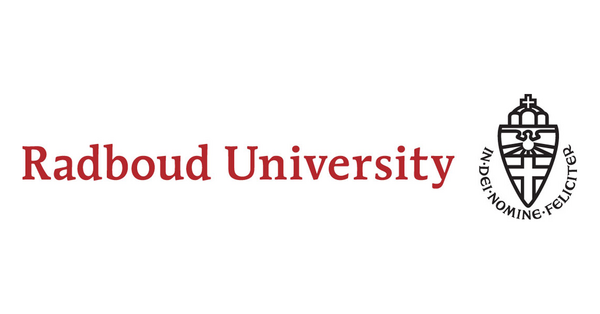The United States is a highly attractive destination for nurses from around the world, offering a wide range of opportunities, diverse medical environments, and a strong demand for qualified professionals. For international nurses aiming to advance their careers in the U.S., it’s crucial to grasp the complexities of obtaining a license, job opportunities, visa sponsorship, and other important aspects to effectively make their way in this field.
Known for its sophisticated healthcare system and varied population, the United States provides a fertile ground for nurses seeking career advancement and personal satisfaction. The continuous increase in the demand for healthcare services has led to a steady rise in the need for competent nursing staff throughout the country.
There are plentiful opportunities in various healthcare environments, from hospitals and clinics to specialized care centers and community health initiatives. Nurses in the U.S. play a vital role not only in the healthcare system but also in enhancing patient care and the overall health of communities.
The Licensing Process for International Nurses in the USA
For nurses trained abroad, understanding and navigating the complex process of acquiring a nursing license in the United States is essential. Each state has its own nursing board, setting unique licensing requirements.
Academic Credentials
International nurses must have a degree from an accredited nursing program to be eligible for a nursing license. The first crucial step is to have their educational credentials evaluated by recognized agencies.
Linguistic Competence
The NCLEX-RN (National Council Licensure Examination for Registered Nurses) is a mandatory standardized exam for nursing licensure in most U.S. states. Additionally, proving English language proficiency through exams like the TOEFL or IELTS is required.
Differences in State Licensure Requirements
It is vital for international nurses to understand the differences in licensure requirements across various states. While the fundamental requirements are generally similar, there can be specific conditions and processes that vary, requiring detailed research into the requirements of each state’s nursing board.
The complexity of these requirements often calls for careful preparation and a deep understanding of the process, highlighting the importance of proper guidance and compliance with the regulations of each state.
Key States for Nursing Careers in the USA
The United States is home to a variety of states, each with unique benefits and opportunities for nursing professionals. Some states are particularly notable for their strong demand for nurses and attractive work environments:
California
Known for its dynamic healthcare industry and varied populace, California is a prime location for nursing careers. Cities such as Los Angeles and San Francisco are home to a wealth of medical facilities, providing an abundance of job options in different nursing fields.
Texas
Texas, with its increasing population and flourishing medical sector, offers a wealth of opportunities for nurses. Urban areas like Houston and Dallas have a significant need for competent nurses, particularly in high-intensity medical settings.
Florida
Attracting people with its pleasant climate and lively neighborhoods, Florida is also a draw for healthcare professionals. The state’s expanding medical infrastructure leads to numerous employment opportunities in a range of medical environments, including long-term and specialized care.
New York
New York State, especially the vibrant New York City, is ripe with opportunities for nurses. The city’s prestigious hospitals and diverse patient base provide a variety of roles for nursing specialists.
Pursuing Nursing Opportunities in the U.S. as a Foreigner
Finding a nursing role in the U.S. as an international professional involves strategic planning and a thorough job search strategy.
Online Job Platforms
Making use of well-known online job sites such as Indeed, Monster, and LinkedIn is a great way to search for nursing roles nationwide. These sites list a variety of job vacancies suitable for different nursing areas and locations.
Networking and Professional Groups
Developing connections and participating in professional nursing groups can greatly improve job opportunities. Involvement in nursing organizations, attending industry events, and networking with fellow professionals can offer valuable insights and potential job leads.
Healthcare Recruitment Firms
Working with recruitment firms that specialize in healthcare can simplify the job hunt. These firms often have strong connections with medical facilities and can help match international nurses with appropriate roles.
Customized Resumes and Cover Letters
Preparing a resume and cover letter that meet U.S. standards is essential. Emphasizing relevant experience, skills, and qualifications that meet the criteria of U.S. employers can increase the likelihood of securing job interviews.
Visa Options and Sponsorship for International Nurses
International nurses looking to work in the U.S. must consider various visa options and sponsorship programs designed for healthcare professionals.
H-1B Visa
The H-1B visa is a common choice for skilled professionals, including nurses, allowing them to work temporarily for a sponsoring employer in the U.S.
TN Visa
For Canadian and Mexican citizens, the TN visa under the NAFTA agreement offers an opportunity to work as a nurse in the U.S.
Employer-Sponsored Visas (EB-3)
The EB-3 visa category provides a pathway for foreign workers to gain permanent residency in the U.S. through employer sponsorship, assuming they meet the necessary qualifications and the employer can show a lack of local candidates.
Variety of Nursing Positions in the USA
The nursing field in the United States offers a range of roles, each with unique duties and environments, addressing the varied needs of patients and the demands of the healthcare system:
Registered Nurse (RN)
RNs have a broad scope of responsibilities and can work in various environments such as hospitals, clinics, long-term care facilities, and community health initiatives. Their duties encompass direct patient care, developing treatment plans, and collaborating with medical teams.
Nurse Practitioner (NP)
NPs, with advanced academic qualifications, have the authority to diagnose and treat patients, either independently or alongside physicians. They are employed in primary care, specialized clinics, and hospitals, delivering a wide range of healthcare services.
Certified Nurse Midwife (CNM)
CNMs focus on women’s health, offering prenatal and postnatal care, and support during childbirth. They typically work in hospitals, birthing centers, or in partnership with obstetricians.
Other Specialized Nursing Roles
Positions like Nurse Anesthetists, Clinical Nurse Specialists, and Nurse Educators represent specific sectors within nursing, each demanding particular skills and educational backgrounds.
Salary and Compensation Overview
Nursing salaries in the U.S. are influenced by various factors such as location, experience, and area of specialization:
Average Salary Ranges
- Registered Nurses (RNs) generally earn between $60,000 and $110,000 annually, varying with location and experience.
- Nurse Practitioners (NPs) often have higher salaries, averaging between $90,000 and $150,000 per year.
- Specialized roles like Nurse Anesthetists or Nurse Midwives can command salaries over $150,000, reflecting their advanced expertise and roles.
Determining Factors
Salary variations are affected by regional cost of living, demand for specific nursing skills, educational level, and additional certifications or specialized training.
Challenges and Prospects for International Nurses in the USA
International nurses transitioning into the U.S. healthcare sector often face hurdles such as adapting to a new culture, understanding complex licensing procedures, and dealing with immigration protocols. Despite these obstacles, they also encounter substantial opportunities for career growth, skill enhancement, and playing a vital role in the U.S.’s diverse medical environment.
Benefits of Nursing in the United States
Working as a nurse in the U.S. presents numerous benefits, including exposure to state-of-the-art medical technologies, dealing with a variety of patient demographics that enrich professional experience, opportunities for continuous learning, and a fulfilling work culture.
Final Thoughts
Pursuing a nursing career in the United States as an international professional demands resilience, detailed planning, and a comprehensive grasp of the necessary steps. The challenges, while significant, are offset by the vast opportunities available in the U.S., making it an attractive destination for nurses seeking to expand their horizons and experience a diverse professional environment.
International nurses should utilize all available resources, understand the specific licensing requirements, explore employment possibilities in different states, and consider various visa options to achieve their goal of joining the U.S. healthcare industry.
The contribution of international nurses is crucial to the U.S. healthcare system, bringing invaluable skills, enhancing patient care quality, and adding to the cultural diversity of the healthcare workforce.




